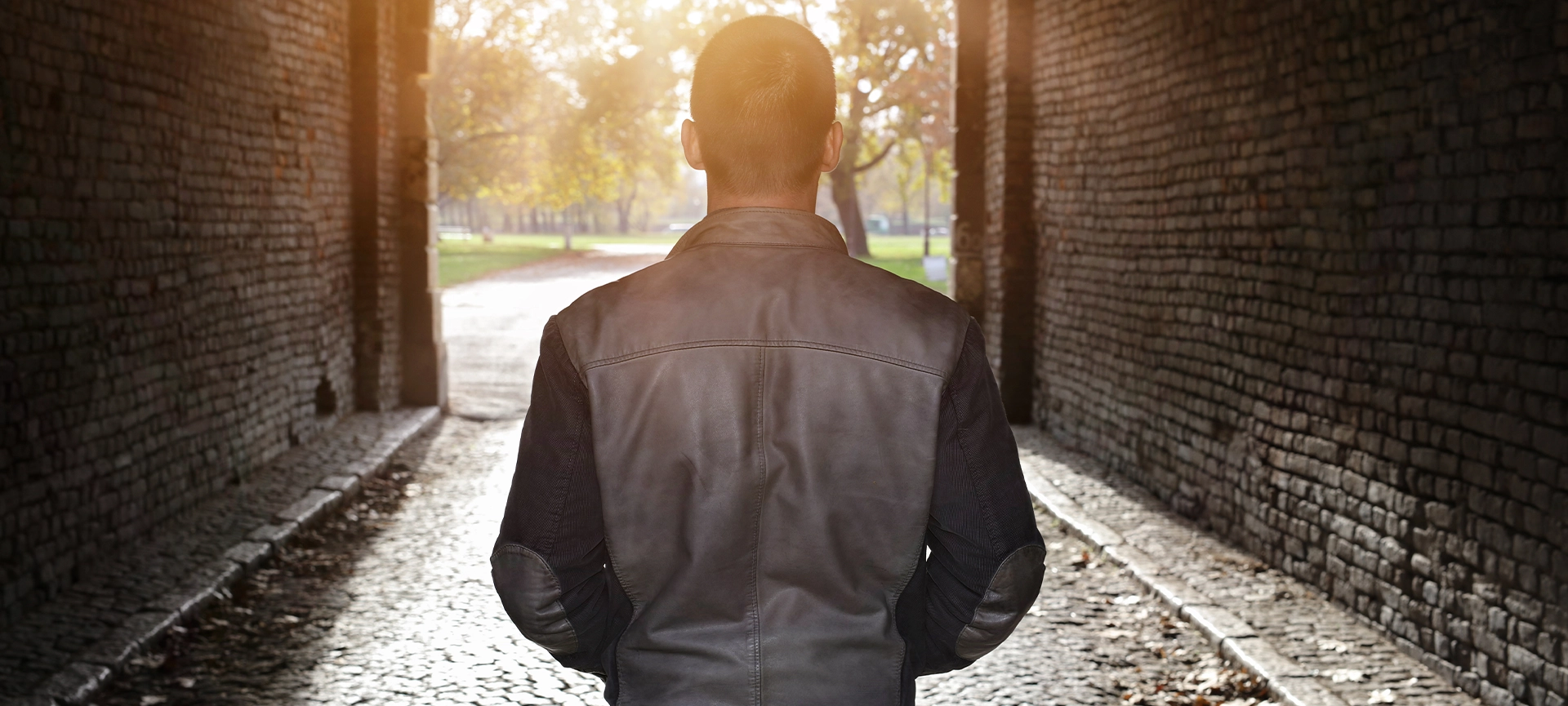Addiction recovery does not end when you finish the treatment program in rehab. The real challenges of recovery will come when you go back home and expose yourself to the real world. It’s going to be tough but it is something that you can definitely overcome.
So, now that you’ve finished the addiction treatment program at the rehab centre, what are you going to do next? For sure, a celebration for this accomplishment is only fitting. But remember that staying sober is going to be a process that you have to go through day by day.
Related article: How to Set SMART Goals for Drug Addiction Recovery
Managing Changes in Your Life
Addiction recovery can bring about so many changes in your daily life. It’s going to take some time for you to get back to the life you had before the addiction happened. But what you have to remember is that there are a lot of people who are willing to help, support, and encourage you while you start your life over.
What you have to be ready for is the way that your loved ones and friends treat you. They may be more concerned about you and they may ask questions. For example, you may get plenty of “how are you?” questions but that’s alright. Take it as a sign that these people care about you.
While you have good people around you cheering you on during your recovery, you have to cut some ties as well. Being serious about addiction recovery means taking the necessary steps to ensure that you remain sober. You’ve had friends who you did drugs with. You need to stop seeing them and communicating with them. You don’t want to risk being tempted to go back to your old life with drugs.
Surround yourself with loving, caring, and supportive people who only want the best for you. If your family is still in the process of healing from the effects of your addiction, give them time. There are plenty of support groups that you can participate in. It will be full of people who are going through similar processes in their addiction recovery.
How to Stay Sober
Upon completion of detox and the program for inpatient rehab, you will now have your chance to go back to your normal life. It means you can go back to your family, friends, hobbies, and work. Keep in mind that being in the real world will expose you to temptations and cravings.
There have been studies that state that most relapses happen within the first year after getting out of rehab. However, when you know and understand what triggers you to go back to drugs, you’ll be more equipped to resist the temptations.

In addiction recovery, it is vital that you develop healthier relationships with people who don’t do drugs. These new friends will be able to encourage you to pursue a healthy and drug-free lifestyle. They can introduce you to positive distractions as well as encourage you to change positively. These relationships can definitely help you in maintaining your sobriety after rehab.
Before leaving the inpatient rehab program, it’s really important that you have a plan on continuing addiction recovery. It’s going to be much easier to go through the process if you know where and how you’re going to start. Talk to your healthcare provider so you can discuss with them the options that you can choose from.
Related article: How to Set Boundaries for Your Loved One
Various Support for Continuing Addiction Recovery
For many people going through the process of recovery, life once rehab is over can be challenging. After rehab, there should be ongoing progress so that sobriety may be obtained for the long term. It’s a big step to complete the rehab program. However, there should be continuing support to avoid any relapse from occurring.
There are a lot of options available for continuing addiction recovery. Although different in many ways, any support you can get is better than none at all. All kinds of help have one thing in common: it will encourage you to lead a healthier lifestyle.
For example, you can join social groups. With them, you can celebrate a sober life. You can take active steps so you can stay clean. When you’re with a group, you will also feel accountable to stay healthy.
Members of social groups need to remember the lessons and experiences that they have learned while they were in treatment. At the same time, they should work on the new lifestyle that they are forming and honour it.
Another option for continuing addiction recovery support is joining a church. If you’re a spiritual person, this decision may benefit you. Nevertheless, you don’t need to be spiritual to try new things. A church is composed of good and caring people who would want to see you succeed in your recovery.
If you want a more physically active group, you can join a team and play a sport that you like. It will encourage you to participate and get involved. You can learn plenty of life skills from being in a team that strives to achieve a common goal. Sportsmanship, teamwork, and cooperation are some of the values that you will get from playing a team sport.
With all these kinds of support, you can become a more independent person who does not have to rely on substances. You can be more focused on staying clean and sober because your mind won’t always be thinking about drugs or alcohol. The new activities you have will help you to get over past addictions and encourage you to work on the present moment.

12-Step Programs
These programs are greatly beneficial for continuing addiction recovery. The 12-Step program started with Alcoholics Anonymous and has continued to grow to include other substances like crack cocaine and nicotine. The method of the program relies on the individual admitting that they are powerless and that they need a higher power.
In the 12-Step program, the participants also assume their responsibility for the relationships that have been damaged because of their drug addiction. There are many kinds of programs under this one. You can choose which ones you like depending on your cultural values and religious style, as well as your other needs.
Related article: Can Experiential Therapy Help in Addiction Recovery?
Individual Therapy
Any addiction treatment specialist will tell you that your addiction is not merely a dependence on a substance. Addiction happens because of a lifestyle that is full of stress as well as other possible triggers. These factors contribute to drug abuse and eventual drug addiction.
There are several individual therapies that can help you in your continuing addiction recovery. For example, there’s cognitive behavioural therapy. It can help a recovering addict to understand what the underlying issues are that led to the addiction. Through CBT, these issues may be addressed along with the other factors of the addiction.
In CBT, you will be working with your therapist in uncovering behaviours that cause drug addiction. The therapist will also help you as you go through the withdrawal symptoms that can be very uncomfortable and distressing.
With individual counselling, you along with your therapist may begin to uncover the deep negative emotions that are in your system. You can also talk about what substances you use and why you use them. For many addicts, they use drugs or alcohol to cope with problems and other negative feelings.
This process is powerful. Patients of individual therapy can connect with various other treatment options. For example, there are different exercises like meditation. It can help you to be more mindful of your thoughts, behaviours, and feelings. You can also learn to relax and be calmer. It’s a good exercise to deal with stress without having to resort to illicit substances.
Continuing Check-ups
Check-ups with a therapist or a mental health expert can promote accountability. It is why having continuing check-ups are necessary and beneficial for you. They will ensure that you are indeed making progress with your recovery. They will also help you stay on track in your treatment.
The check-ups may be regular ones such as every couple of weeks during the early stages of your recovery outside of rehab. It may also be infrequent like four times every year. The process usually involves a healthcare professional assessing your vital signs and other exams.
Because you have had exposure to dangerous substances, you may have developed side effects. Some of these include heart problems, muscle twitching, weight gain or loss, sleeping problems, breathing issues, or wounds. It is vital to ensure that you are healthy so that you can work on maintaining your good health and an even healthier lifestyle.
Other Support Groups
Regardless of the support group that you’ll participate in, what’s important is that you find one that caters to your needs for continuing addiction recovery. Another example of a good support group is SMART or Self-Management and Recovery Training. It is a popular choice among recovering addicts. SMART bases its program for recovery on methods proven by research. In the program, you can learn how to better control your addiction.
For teenagers, there are also support groups that focus on that particular age group. It focuses on the common problems that young people have during such age. Other support groups are specific to gender such as those who are part of the LGBT community.

Nurturing a Healthy Social Life
In rehab, you get to see different possibilities on how you can achieve the goals that may have seemed impossible before. As a recovering addict, you need to prepare for the many changes in your lifestyle. You have to be ready for the effects of such changes in your social life.
At the start, when you enter a sober life, you will have to cope with the feelings of helplessness, loneliness, and boredom. You will miss the activities you used to do when you did drugs or drank alcohol. It’s most likely that you will feel bored while you’re on recovery.
However, what you should keep in mind is that there are so many activities that do not need illicit substances to be enjoyable. Such activities can provide you with a social and mental outlet. Here are some of the activities that you can try while on recovery:
- Learning to play a musical instrument
- Taking an art class
- Watching inspirational movies
- Reading self-help books
- Volunteering
- Gardening
- Playing sports
As a recovering addict, you also no longer have to spend so much money on buying drugs or alcohol. That means that you can save a lot because of it. With the money you have now, you can participate in other healthy activities that you like. You can join events, conventions, or take classes. What is most important is that you don’t need to be drunk or high just so you can enjoy the new life that you have.
Takeaway
Another essential step for continuing addiction recovery is to build your daily routine. With it, you can have a structure that is familiar so that you don’t have to get stuck and get bored. Wake up at a particular time and go to bed at the same time every night.
Fill your days with activities such as classes, attending group counselling sessions, or trying new hobbies. A structure for your days will provide you with the stability that you need. You will also look forward to the activities that you have on your calendar.
For addiction rehab concerns, call us today!
Related article: Can Online Recovery Programs Help with Drug Addiction?








